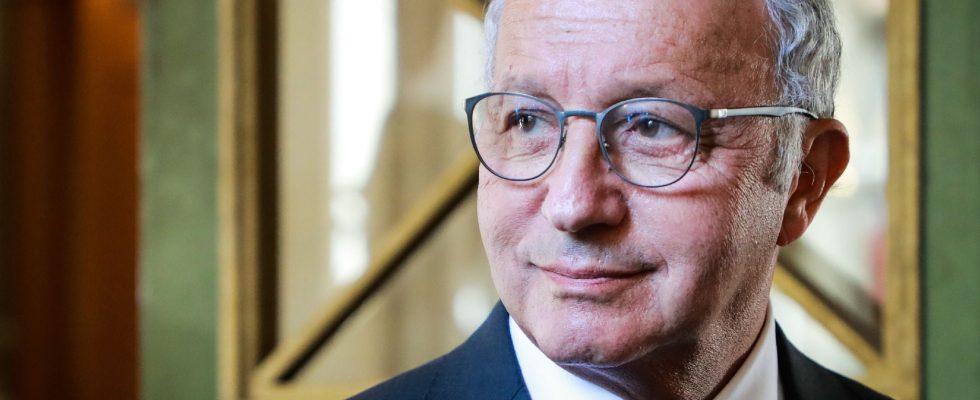The Sages must decide. After the controversial vote on the text on December 19, the Constitutional Council must deliver its opinion this Thursday, January 25 on the immigration bill. Four referrals were examined: that of the President of the Republic himself, who had conceded on the France 5 set that certain provisions were not “in accordance with our Constitution”. The President of the National Assembly Yaël Braun-Pivet targets four specific measures of the law, while two referrals from left-wing deputies and senators contest several dozen.
From tightening access to social benefits and family reunification to calling into question land rights or even migration quotas, uncertainty hovers over the number of measures that could be reversed by the Constitutional Council. “Thirty” estimates the Macronist deputy Sacha Houlié, president of the Law Commission, who voted against the final version of the text in the Assembly. Left-wing parliamentarians identify more than forty.
Most of the contested measures are described as “legislative cavaliers”, that is to say additions without sufficient link with the government’s initial copy. A judgment on form therefore, but which would prevent the measures from appearing in the legislation finally promulgated. Other measures are nevertheless also contested on the merits, accused of flouting constitutional principles and values. The Constitutional Council can choose to partially or completely censor the text.
Measures that do not comply with the “principle of equality”?
In its referrals, the left draws up a long list of “cavaliers”. We find in particular the tightening of the conditions for family reunification (with a required length of residence increasing from 18 to 24 months) or the establishment of a “return deposit” for foreign students – a measure on which the executive -he even seemed quite uncomfortable.
Also targeted is the length of residence required for non-Europeans in a legal situation to benefit from certain social benefits. For family allowances, it was set at five years for those not working, and 30 months for others. For Personalized Housing Assistance (APL), these two thresholds were set at five years and 3 months.
The left considers that these measures are also fundamentally contrary to the Constitution. Just like the President of the National Assembly Yaël Braun-Pivet, who asked the Wise Men to check whether they complied with the “right to lead a normal family life” and the “principle of equality”. The latter also questions, like the left, the constitutionality of the migratory quotas, dear to the right, that Parliament would set to cap the number of foreigners admitted to the territory.
“External contributions” to the Council
Many other measures could be in the spotlight, without it being really possible to estimate what the position of the Sages will be, such as the end of the automaticity of land law for the children of foreigners born in France, the the exclusion of spouses under 21 from family reunification, the restriction of access to the “sick foreigner” residence permit or the exclusion of fare reductions in transport for foreigners in an irregular situation.
In addition to these provisions added in Parliament, “in the initial bill, there are also provisions contrary to the Constitution, in particular on asylum. The judgment by a single judge at the National Court of Asylum for example”, argues public law professor Serge Slama. “Other aspects of legal litigation or retention are problematic,” believes the academic who coordinated the sending of “external contributions” to the Council.
“A certain confusion among some between law and politics”
If the Sages consider that a measure is a “rider”, nothing prevents it from being proposed through another legislative text, unlike measures which would be rejected on the merits. This second category of censorship would thus fuel calls from the right for a revision of the Constitution.
“To punish the government for having deferred to the Constitutional Council on this text, the Wise Men could choose not to censor certain controversial measures but to add reservations of interpretation”, suggests the constitutionalist Anne-Charlène Bezzina to AFP, which adds that “this would become a real headache for the ministers who will have to apply the law”.
The President of the Constitutional Council Laurent Fabius did not mince his words in the face of the omnipresence taken by the Sages in the public debate last year, whether on pension reform or the immigration law. “2023 has indeed struck me and my colleagues by a certain confusion among some between law and politics. […] The task of the Council is, whatever the text before it, to rule in law”, he declared during his greetings to the Head of State, recalling that “the Constitutional Council is not an echo chamber of public opinion trends, it is also not a chamber of appeal for Parliament’s choices.” Once again, however, the Council’s decision will be widely commented on on both the left and the right.
